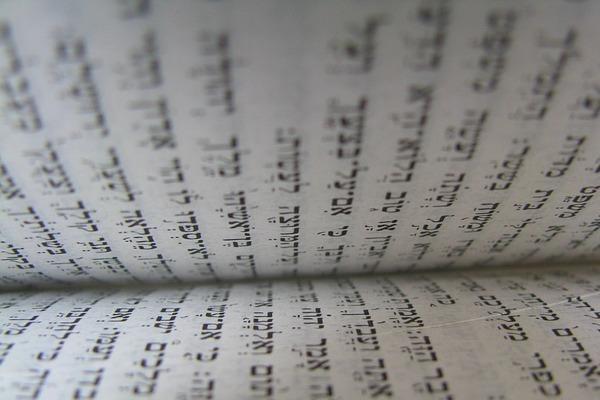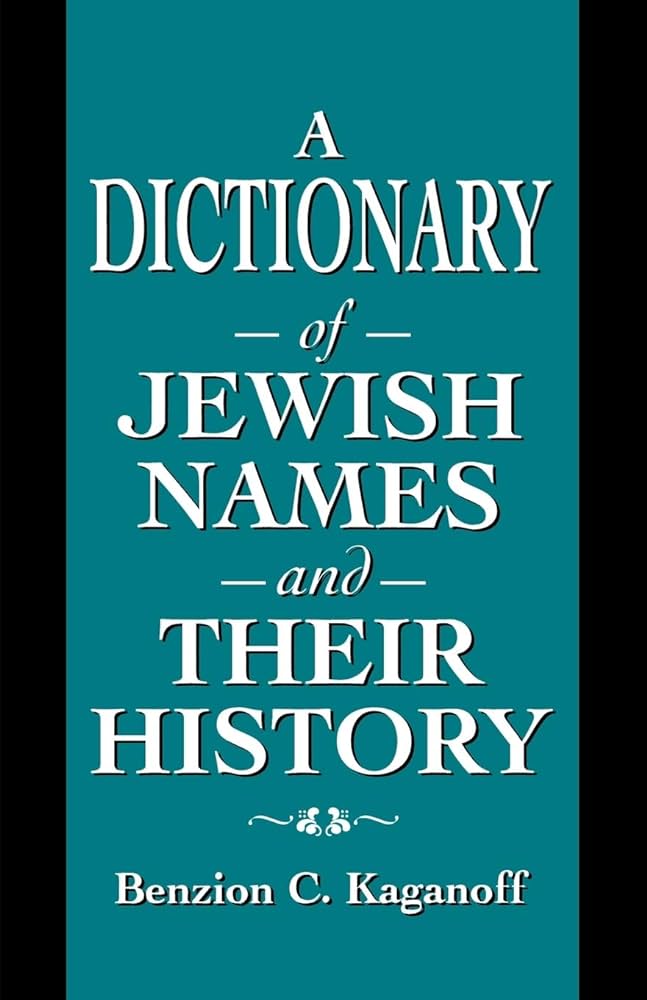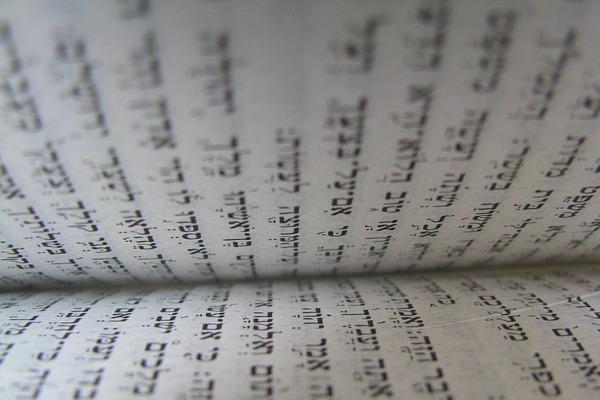The brief answer to why some Israelis have german-sounding names would be “because of Ashkenazim” – Jewish people who settled in the lands of Germany, Austria, even Poland who kept the predominately Eastern European rites and traditions of Jewish practice.
The Evolution of Jewish Family Names
In history, Jewish people settled into the Holy Roman Empire. Back in the year 321, Cologne, serving then as the capital of the Lower Germanic province of the Roman Empire, became the focal point for an official edict. This edict marked the earliest documented evidence of Jewish population in Germany.
They were even invited to England by William the Conqueror, partly as a way to jump-start education and boost the local economies. They were physicians, translators, administrators, merchants, lenders, and more, even with religious and secular restrictions imposed on their communities.
Over time, the Jewish communities that had been based primarily in continental and eastern European lands became known as the Ashkenazim, and they primarily used the Yiddish language (a language that developed from Hebrew, German, as well as languages like Russian and Polish) as a method of communication. They developed their own rites, traditions, literature, and customs. When naming laws were implemented throughout Europe, many Ashkenazim took on surnames that reflected the language of their location – most often, the German-speaking areas they were already based in.
Until the 19th century, many Ashkenazi Jews lived in these regions but did not possess family names. Instead, identities were tied to parentage, such as “Ya’akov ben Yitzhak” (Jacob son of Isaac). Unlike their Sephardi counterparts, who adopted surnames earlier, Ashkenazi Jews embraced family names in the wake of historical events.
While a small number of German-speaking Jews adopted surnames in the 17th century, the majority of Jews, particularly those living in Eastern Europe, refrained from doing so until it became mandatory. This process began in the Austro-Hungarian Empire in 1787 and concluded in Czarist Russia in 1844. Driven by the aspiration to establish modern nation-states, authorities mandated that Jews acquire last names to facilitate processes such as taxation, conscription, and education.
Some paid for appealing names like “Edelstein” (precious stone), while others received more ordinary or even undesirable appellations. This mandate contributed to the variety of German-sounding names among Jews.
World War II
By the time of World War II, estimates place Ashkenazim at about 92% of the Jewish world population (and consequently as the vast majority of Jews in Europe) with Yiddish speakers worldwide at approximately 11 to 13 million, with Poland and Germany as major cultural centers. During the World Wars, Jewish individuals, including those in the Anglo-Saxon world, often anglicized their names. This wasn’t solely an assimilation effort but, at times, a pragmatic choice during periods of global conflict.
With the advent of the Holocaust, many Ashkenazim (along with Jews practicing other rites such as Mizrahi and Sephardim), as well as ethnicities, other religions, and other people deemed a danger to the Nazi regime, perished. Jewish people sought refuge in other countries, such as the United States. The first Jews that arrived in America are said to have been Sephardic.
The end of World War II saw the establishment of the State of Israel, and consequently the establishment of Israel’s Law of Return in 1950. The newly established Israel then saw a flood of migration from Ashkenazim.

German-Jewish Naming Practices
In Austria, a significant number of Jews began adopting family names before the early 19th century due to identification requirements for taxation, census, and military conscription. This shift aimed to facilitate administrative processes and distinguish individuals within the community.
Categorization of Names
Jewish family names fell into distinct categories, with place names being the most common. Interestingly, these places didn’t necessarily represent current residences but were often associated with previous dwellings and the roots of the family. Some surnames derived from locations are BERLINER (from Berlin), FRANKFURTER (from Frankfurt), DANZIGER (from Danzig), LIPSKY ( from Leipzig), OPPENHEIMER (from Oppenheim), WIENER (from Vienna), DEUTSCH (German), POLLACK (Polish), BRESLAU, MANNHEIM, CRACOW, and WARSHAW (Warsaw).
Place of Residence and Occupations
Beyond town names, some families adopted house names as their surnames. Occupations, such as Schneider (tailor) or Zimmermann (carpenter), formed another significant category. Other popular names include HOLTZ (wood), HOLTZHACKER (wood chopper), GOLDSCHMIDT (goldsmith), SCHNEIDER (tailor), METZGER (butcher), KRIEGSMAN (warrior), MALAMED (teacher), FINKELSTEIN (diamond merchant), EISEN (ironworker), WEIN (wine), and FISCHER (fisherman).
Matronymics
Emphasizing the influential role of Jewish women in various domains, certain families opted to create surnames from women’s first names, indicating lineage through the mother. This distinctive approach is evident in a family name like Chaiken — denoting the son of Chaikeh; Edelman — the husband of Edel; Gittelman — the husband of Gitl; and Glick or Gluck — potentially originating from Glickl, a popular woman’s name in early Yiddish literature. Furthermore, last names such as Gold/Goldman/Gulden may trace their origins to Golda; Malkov from Malke; Perlman — indicating the husband of Perl; Rivken — possibly derived from Rivke; and Soronsohn — identifying the son of Sarah.
Physical Characteristics and Plants
Physical attributes influenced names, with Roth (red), Weiss (white), Barth (beard), Kraus (curly), and others reflecting distinctive features. Other examples include Alter/Alterman, indicating ‘old’; Dreyfus, potentially denoting ‘three-legged,’ with reference to someone who walked with a cane; Erlich, a surname associated with ‘honesty’; Frum, reflecting ‘devotion’; Gottleib, meaning ‘God lover,’ possibly referencing someone deeply devout; Geller/Gelber, translating to ‘yellow’ and perhaps pertaining to individuals with blond hair; Gross/Grossman, signifying ‘big’; Gruber, with associations to ‘coarse’ or ‘vulgar’; Feifer/Pfeifer, suggesting a ‘whistler’; and Fried/Friedman, reflecting a state of ‘happiness.’
You can also hear surnames like Hoch/Hochman/Langer/Langerman, indicating ‘tall,’ and Klein/Kleinman, signifying ‘small,’. Additionally, names inspired by plants or trees, like Blum/Bloom and Rosen, were prevalent, possibly due to their proximity to individuals’ homes.
Tribal Descent and Symbolic Animals
Names reflecting tribal or symbolic animal connections were common. Cohen and Katz signaled priestly descent, while Levi and Levy denoted tribal affiliation. Some names originated from German words representing animals associated with biblical tribes, like Loewe (lion) for Judah and Hirsch (deer) for Naftali.
Taub, derived from Yiddish, translates to “dove.” This linguistic root forms the basis of the Ashkenazic surname Tauber. The dove holds symbolic significance connected to the prophet Jonah. The Ashkenazic surnames Wolfson, Wouk, and Volkovich find their origin in the root “Wolf,” with the wolf serving as the symbolic representation of the tribe of Benjamin.
Other Bought Names
These names were often chosen for positive associations, including GLUCK (good luck), ROSEN (roses), ROSENBLATT (rose paper or leaf), ROSENBERG (rose mountain), ROSENTHAL (valley of roses), ROTHMAN (red man), KOENIG (king), KOENIGSBERG (king’s mountain), SPIELMAN (person at leisure), LIEBER (lover), BERG (mountain), WASSERMAN (water dealer), STEIN (glass or stone).
Nicknames and Sound-alikes
Nicknames, terms of affection, and sound-alike names added further diversity. Eisen (iron) names often linked to patronymics like Isaac or Israel, showcasing the multifaceted nature of German-Jewish naming practices. Understanding these diverse categories provides insight into the historical, occupational, and symbolic dimensions of German-Jewish surnames.
German Jews and Contemporary German Culture
Germany has embraced a profound awareness of its historical responsibility toward the Jewish community and the State of Israel, acknowledging the atrocities committed by the Nazi regime. This commitment is integral to German policy, emphasizing remembrance, reconciliation, and vigilant dedication for the present and future. The country expresses deep gratitude for the flourishing of Jewish life, now hosting the third-largest Jewish community in Western Europe, a community continuously expanding with immigrants.
Berlin, Germany’s multicultural capital, stands out as a thriving center for Jewish life, witnessing a resurgence in majestic synagogues and vibrant community gatherings. Notably, the Jewish Museum Berlin, Europe’s largest of its kind, serves as a poignant testament, attracting approximately 700,000 annual visitors.This institution encapsulates 2,000 years of Jewish culture and German-Jewish history, symbolized by architect Daniel Libeskind’s post-modern design, reflecting breaks, voids, hope, and continuity in German-Jewish history.
The presence of 100,000 Jewish congregation members, represented by the Central Council of Jews in Germany, further underscores the nation’s commitment to preserving and fostering German-Jewish cultural heritage. Through a state treaty, the Federal Government actively supports the Central Council of Jews in its multifaceted efforts, including integration, social work, and interregional tasks.
Some Jewish Performers’ Original Birth Names
Examining the birth names of famous Jewish performers reveals fascinating transformations: Woody Allen was born Alan Stewart Koenigsberg, Lauren Bacall as Betty Joan Perske, and Kirk Douglas as Issur Danielovich Demsky. For those unfamiliar with the reason behind Sean Ferguson being Jewish, it stems from an old joke. Legend has it that a Jewish immigrant, unable to recall an American-sounding name, responded in Yiddish, saying, “Kh’hob shoyn fargesn,” meaning “I’ve forgotten already.” The immigration inspector interpreted this as “Sean Ferguson.”
Traditional German Baby Names
If you are in search of a beautiful German name for your son or daughter that pays homage to the parents’ heritage, these Old German names might be a great choice for your child. First, here are the most popular German names for girls that have held the top spot for decades:
- Amelia: This name, meaning “work,” is derived from Amalia.
- Claudia: With the meaning “enclosure” or “lame,” it adds an intriguing touch to a name famously carried by supermodel Claudia Schiffer.
- Ella: Often associated with its Hebrew meaning of “goddess,” some also view Ella as a variation of the German word ‘alia,’ meaning “other.” Regardless, it remains a long-favored German girl’s name.
- Emma: Originally a diminutive form rooted in Germanic names beginning with the ‘ermen’ root, signifying “whole” or “universal,” Emma has solidified its standing.
- Emmeline: Another derivative of Amal/Amalia, conveying “work,” this classic name exudes charm.
- Gisila: Known today as Giselle, this name, meaning “pledge,” is as stunning as the famous model herself.
- Greta: An Old German baby name now associated with Hollywood glamour, thanks to Greta Garbo. It translates to “pearl.”
- Heidi: A German model, Heidi Klum, contributed to the popularity of this name, a shortened version of Adelheid, meaning “noble and serene.”
- Ida: A short and sweet name signifying “industrious one” or “youthful.”
- Ilse: Translating to “oath of God,” this name might ring a bell as Elsa.
Common German names often draw inspiration from the Bible or have roots in Latin, Greek, and Germanic languages.
Here are also some traditional German names for boys that have stood the test of time:
- Bruno: This name holds an old German meaning of “armor,” “protection,” and “brown.”
- Dieter: Meaning “army of the people,” Dieter has maintained popularity and has been borne by German figures across various fields.
- Fritz: Translating to “peaceful ruler.”
- Johann: Signifying “God is gracious.”
- Karl: A well-known German name meaning “free man,” evolving into the royal-sounding Charles.
- Hans: A popular name in both Scandinavian and German contexts, meaning “God is gracious.”
- Klaus: Conveying the meaning “victory of the people.”
- Otto or Otis: This luxurious name translates to “wealthy.”
- Reinhard: A variation of Reynard, symbolizing “counsel” and “brave” or “hardy.”
- Bernhard: The German variation of Bernard, which means “bear” and “brave”.
Resources

“A Dictionary of Jewish Names and Their History” by Benzion C. Kaganoff stands out as an exceptional resource for those interested in exploring the origins of Jewish family names. Geared towards a general audience, this book offers a comprehensive journey into the historical development of Jewish surnames, unraveling the reasons behind their changes over time. Also, “Jewish Family Names and Their Origins: An Etymological Dictionary” by Heinrich Guggenheimer and Eva Guggenheimer extends the exploration of names and offers valuable insights.
FAQs about German-sounding names
Here are some of the most frequently asked questions about the origins of some Jewish names.
How can you tell if a last name is Jewish?
Determining if a last name is Jewish often involves considering historical and cultural factors. Many Jewish surnames originated from occupations, places, personal characteristics, or Hebrew words. Familiarity with common Jewish naming patterns and consulting resources like genealogical databases, historical records, and books on Jewish names can provide valuable insights.
What is a common Jewish surname?
Common Jewish surnames vary across regions and communities. Some widespread Jewish last names include Cohen, Levy, Goldstein, Rosenberg, and Friedman. However, the prevalence of these names can differ among Ashkenazi and Sephardic Jews or Jewish communities from different parts of the world.
What is a traditional Jewish surname?
Traditional Jewish surnames often reflect historical naming practices and cultural influences. They can include names related to professions (e.g., Goldsmith), places of origin (e.g., Berliner), Hebrew words (e.g., Shalom), or personal characteristics. Exploring etymological dictionaries and historical resources can shed light on the tradition behind specific Jewish surnames.
What are German Jewish last names?
German Jewish last names encompass a diverse range reflecting historical and geographical contexts. Examples include names like Goldschmidt, Rosenbaum, Oppenheimer, and Strauss. These surnames often have roots in Germany’s Jewish communities and may carry unique historical significance within the broader context of Jewish naming traditions.
Summing Up: Why Do Some Israelis Have German-Sounding Names
From the earliest evidence of Jewish life in Cologne in 321 to the naming practices influenced by location, occupation, and even physical traits, these names carry stories of resilience and adaptation. The compelling journey continues through the naming laws of Europe, mandating Jews to adopt surnames for taxation, conscription, and education. Ashkenazi Jews, embracing family names in the 19th century, navigated a diverse landscape of appellations – from the mundane to the extraordinary.
World War II brought challenges, with many adopting anglicized names during global conflicts. The Holocaust’s impact reshaped Jewish communities, pushing survivors to seek refuge worldwide, including in the newly established State of Israel. Contemporary Germany, acknowledging historical responsibility, now hosts a thriving Jewish community.
This journey through German-Jewish naming practices showcases the resilience and diversity of a community deeply woven into history, inviting enthusiasts to delve into the etymology of these enduring names. If you’d like to know more about German culture, come check us out at SmarterGerman!

